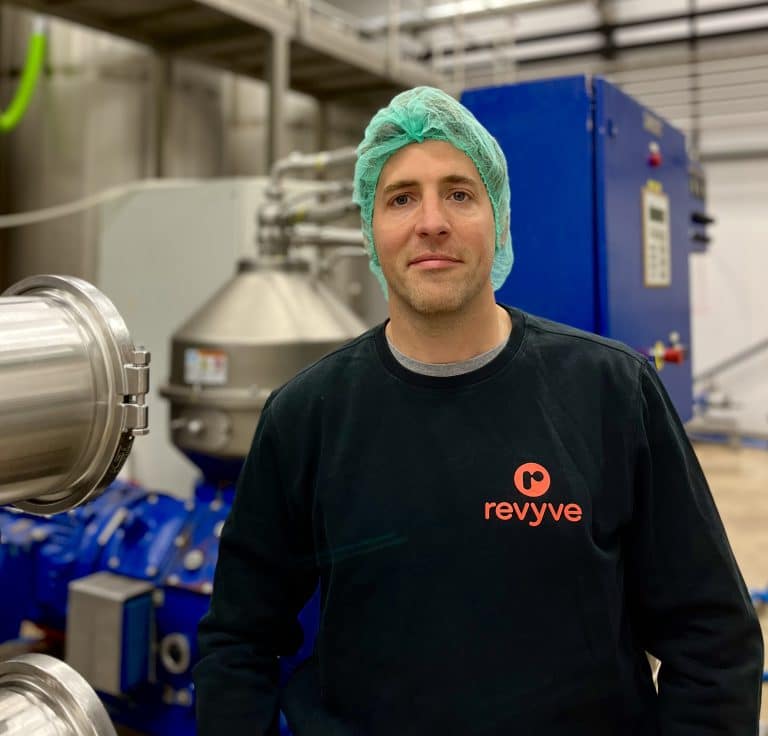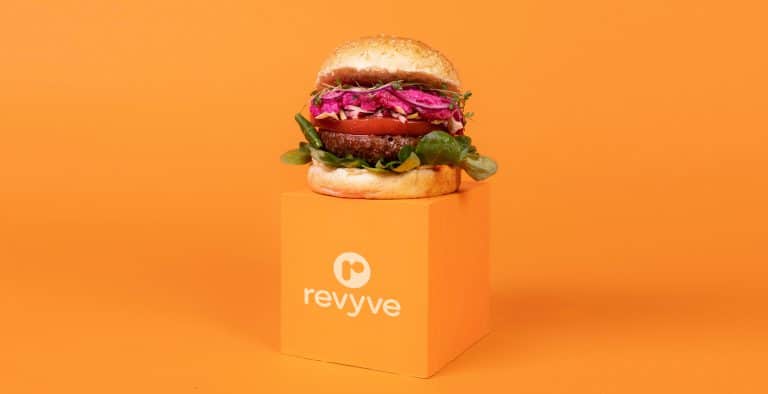We spoke to Marcel van der Vaart, Business Development and Innovation Manager at Cosun Protein, and Cedric Verstraeten, CEO of revyve, about the opportunities for yeast protein and the close collaboration between the cooperative and the scale-up.
From algae to yeast
“Revyve started four years ago in Wageningen,” Cedric begins. “Initially, we carried out research into gelling proteins from algae, but this process soon proved to be too costly and complex.” Yeast is a very suitable alternative for extracting protein, and is readily available. “Yeast is a by-product in breweries that often goes to animal feed. By utilising it as a functional protein, we’ve added value to a locally sourced, circular resource.” Extracting the protein takes place in a ‘mild’ process, without chemicals and at low temperature. A study on our process proved that, thanks to the efficiency of the microbial biomass and our circular approach, we can achieve a 95% reduction in CO2 compared to chicken egg white protein.”
Century-old ingredient
In plant-based products, yeast protein is an alternative to commonly used additives. It causes gel formation; binding water. This can create a crunchy texture such as in meringues and macarons, but it can also create the binding and, therefore, the bite in meat substitutes. Yeast extracts have been used in the food industry since the 1960s and 70s, for example, as a flavour enhancer in spice mixes and sauces. Cedric: “The advantage of yeast is that it’s a trusted ingredient – we even refer to it as an ‘ancient ingredient’. It has the familiar smell of the bakery and of beer. We’re creating a texture that meets the taste experience consumers are looking for, without having to worry about the sustainability, origin and familiarity of this ingredient.”
Joining forces
Revyve is now working on scaling up production to more than 100 metric tonnes a year. Their growth is thanks to a number of investors, including Cosun. Marcel: “This investment fits exactly into the strategy of Cosun Protein. As part of our ambition to replace animal proteins wherever possible, we’re constantly looking for opportunities and possible partners who can help fulfil this ambition.”
However, the collaboration goes beyond just an investment. Cedric: “What makes Cosun different from a regular investor is that it’s an organisation that’s also active in the food industry. They understand what it takes to bring a product to market, and can provide constructive input on what we’re working on.” Marcel adds: “As a start-up or scale-up, it can be difficult to set up a good production facility and infrastructure. With our existing methodology, knowledge and infrastructure, we can help accelerate the R&D and scale-up of revyve.
The collaboration is also inspiring Cosun. Together, we’re showing how we’re working on creating a tasty and innovative plant-based future.”


